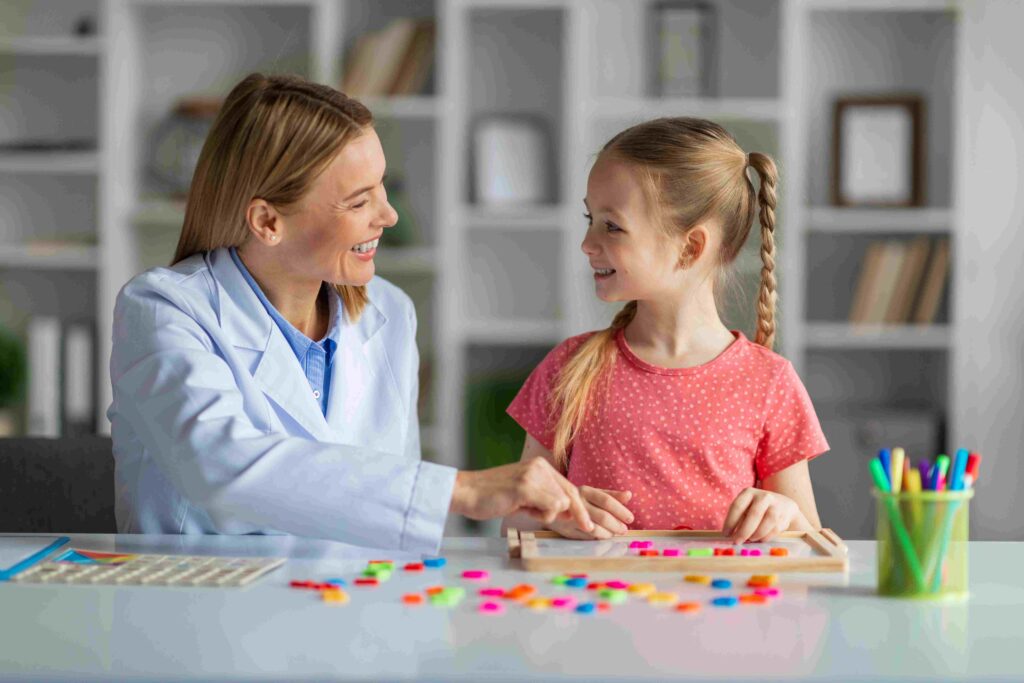Welcome to Deel Behavioral Health, where we prioritize mental well-being. In this comprehensive guide, we explore ADHD (Attention Deficit Hyperactivity Disorder) and offer valuable insights into effective coping strategies for a balanced and fulfilling life.
Understanding ADHD
ADHD Defined
ADHD, or Attention Deficit Hyperactivity Disorder, is a neurodevelopmental disorder that affects an individual’s ability to focus, control impulses, and regulate hyperactivity. It’s a condition that can persist from childhood into adulthood.
Prevalence and Demographics
ADHD knows no boundaries. It impacts people of all ages, genders, and backgrounds. Approximately 5% of children and 2.5% of adults worldwide are diagnosed with ADHD.
Early Diagnosis Matters
Detecting ADHD early is vital for effective management. Symptoms may manifest differently in children and adults, making early identification crucial. Consult a healthcare professional for proper evaluation if you suspect ADHD.
Causes and Risk Factors
The Complex Origins of ADHD
ADHD’s exact cause is still being studied, but it is believed to result from a combination of genetic, neurological, and environmental factors.
Genetic Predisposition
Research suggests that genetics play a significant role in ADHD. If a close family member has ADHD, there’s a higher likelihood of it being inherited.
Environmental Factors
Certain environmental factors, such as exposure to toxins during pregnancy or early childhood, and premature birth, may increase the risk of developing ADHD.
Common Symptoms of ADHD
Inattention Symptoms
- Difficulty Focusing: Individuals with ADHD often struggle to maintain focus on tasks, even when they are of interest.
- Inattention to Details: They may miss important details in assignments or work.
- Difficulty Organizing Tasks: Organizing thoughts and tasks can be challenging.
Hyperactivity-Impulsivity Symptoms
- Restlessness: A common sign is restlessness or the inability to stay seated.
- Impulsive Decision-Making: Impulsivity can lead to hasty decisions without considering consequences.
- Interrupting Others: Impulsivity may manifest as difficulty waiting for one’s turn to speak.
Types of ADHD
ADHD can present in different forms:
- Inattentive Type: Primarily characterized by difficulties sustaining attention.
- Hyperactive-Impulsive Type: Predominantly marked by hyperactivity and impulsivity.
- Combined Type: A combination of inattentive, hyperactive, and impulsive symptoms.
Diagnosis and Assessment
The Diagnostic Process
To receive a formal diagnosis, individuals should consult with a healthcare professional, such as a psychologist, psychiatrist, or pediatrician. The diagnostic criteria are outlined in the DSM-5 (Diagnostic and Statistical Manual of Mental Disorders, Fifth Edition).
Healthcare Professionals
- Psychologists: Often conduct assessments and provide therapy.
- Psychiatrists: Can diagnose and prescribe medication if needed.
- Pediatricians: Diagnose and provide guidance for children with ADHD.
Assessment Tools
Healthcare professionals use various assessment tools and questionnaires, such as the Vanderbilt Assessment Scale, to help with the diagnostic process.
Treatment Options
Medication-Based Therapies
- Stimulant Medications: These are commonly prescribed and can help improve focus and impulse control.
- Non-Stimulant Medications: An alternative for those who cannot tolerate stimulants, these can also be effective.
Behavioral Therapies
- Behavior Modification Techniques: These strategies help individuals develop better coping skills, improve organizational abilities, and enhance time management.
- Counseling: Therapy can provide emotional support and teach effective strategies for managing symptoms.
Alternative and Complementary Treatments
Some individuals explore alternative treatments, including:
- Mindfulness: Techniques like meditation and yoga can help improve focus and reduce stress.
- Dietary Changes: Some studies suggest that dietary modifications, like reducing sugar intake, can be beneficial.
- Neurofeedback: A form of biofeedback that aims to improve self-regulation of brain function.
Lifestyle Strategies
Creating an ADHD-Friendly Environment
- Organization Tips: Use calendars, planners, and digital tools to stay organized.
- Time Management Strategies: Break tasks into smaller, manageable steps, and set clear deadlines.
Nutrition and Exercise
- Balanced Diet: A diet rich in whole grains, lean proteins, and omega-3 fatty acids may support brain health.
- Regular Exercise: Engaging in physical activity can help reduce restlessness and improve mood.
Prioritizing Sleep
- Consistent Sleep Routine: Establishing a regular sleep schedule is essential for better symptom management.
- Sleep Hygiene: Create a conducive sleep environment with dim lighting and a comfortable bed.
Coping Mechanisms
Stress Management Techniques
- Mindfulness and Relaxation Exercises: Techniques such as deep breathing, progressive muscle relaxation, and mindfulness meditation can reduce stress and anxiety.
Building a Support System
- Family and Friends: Loved ones can offer emotional support and understanding.
- Support Groups: Joining ADHD support groups allows individuals to connect with others facing similar challenges.

ADHD coping strategies, including time management and behavioral therapy, greatly enhance daily life for many individuals.









Education and Advocacy
ADHD Awareness
- Raising Awareness: Educating others about ADHD helps reduce stigma and fosters empathy.
- Understanding the Condition: Knowledge empowers individuals with ADHD to advocate for their needs.
Staying Informed
- Reliable Sources: Seek information from reputable sources and healthcare professionals to make informed decisions about treatment and support.
Challenging Stigma
- Promoting Acceptance: Encourage open conversations about ADHD to combat misconceptions and discrimination.
FAQ: Frequently Asked Questions
Is ADHD a lifelong condition?
Yes, ADHD is a lifelong condition, but its impact can change over time. Many individuals learn to manage their symptoms effectively with the right strategies and support.
Can adults have ADHD even if they were not diagnosed as children?
Yes, ADHD can go undiagnosed in childhood and become apparent in adulthood. It’s essential to consult a healthcare professional for an accurate diagnosis.
Are there any non-medication treatments for ADHD?
Yes, behavioral therapies, such as counseling and behavior modification techniques, can be highly effective in managing ADHD symptoms. Lifestyle changes, like diet and exercise, can also make a significant difference.
Can ADHD be managed without medication?
While medication can be beneficial, some individuals with ADHD manage their symptoms effectively with behavioral therapies and lifestyle adjustments.
What role does a support system play in managing ADHD?
A strong support system, including family, friends, and support groups, can provide emotional support, understanding, and practical help for individuals with ADHD.
Is ADHD a learning disability?
ADHD is not a learning disability, but it can affect academic performance. Many individuals with ADHD excel academically with the right support and strategies.
How can I raise awareness about ADHD?
You can raise awareness about ADHD by sharing accurate information, participating in advocacy efforts, and encouraging open conversations about mental health.
We hope you find this comprehensive guide on coping with ADHD and the included FAQ section informative and helpful. Remember that seeking professional guidance and support is essential in managing ADHD effectively. If you have any further questions or need assistance, please don’t hesitate to reach out to Deel Behavioral Health.
Conclusion
In conclusion, ADHD is a condition that, with the right support and strategies, can be effectively managed. If you suspect you have ADHD or need assistance, Deel Behavioral Health is here to help. Reach out to us for guidance and support on your journey to a balanced and fulfilling life.







